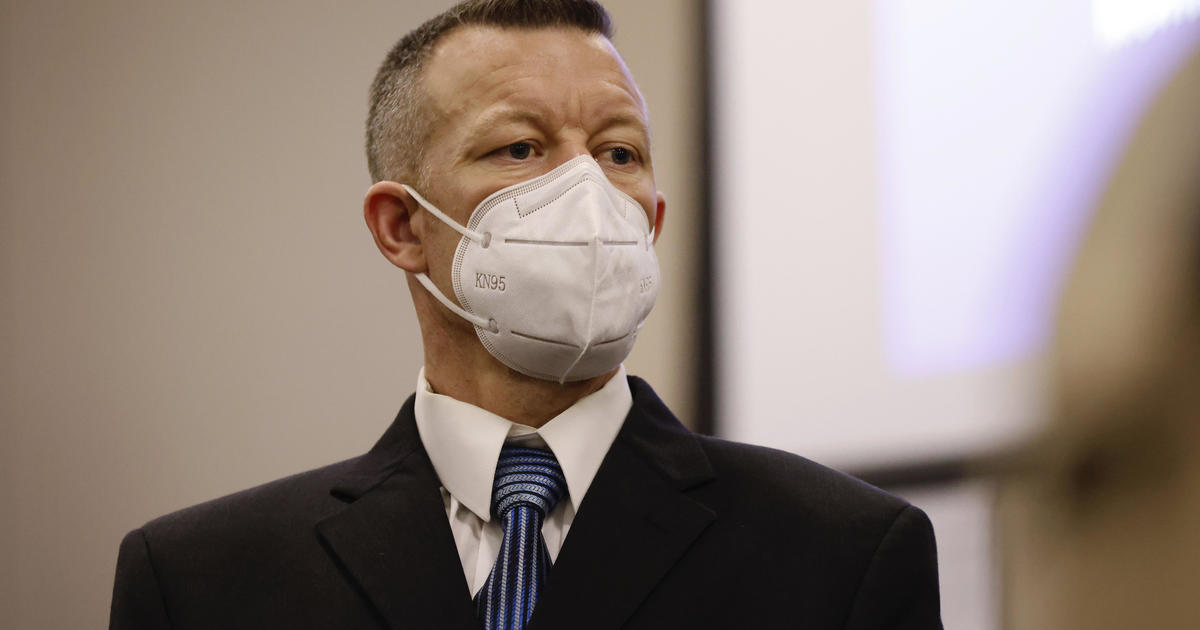CBS News
Paul Flores, convicted killer of Kristin Smart, attacked in prison for second time by fellow inmate, officials say

COALINGA – Paul Flores, convicted in the 1996 killing of college student Kristin Smart, has been stabbed by another inmate at a California prison, officials confirmed Thursday. It marks the second time in the past nine months that he has been attacked in prison.
According to the California Department of Corrections and Rehabilitation, staff saw Flores get stabbed by another inmate in the recreation yard Wednesday afternoon in Pleasant Valley State Prison, which is located in Central California’s Fresno County.
Officers were able to quell the incident by just using verbal demands, CDCR officials say. Two suspected inmate-manufactured weapons have been recovered.
Flores, who is serving a sentence of 25 years to life for the murder of 19-year-old Smart — a student at California Polytechnic State University in San Luis Obispo — was taken to a medical facility outside of the prison due to his injuries in the attack, officials say. He has since already been returned to the prison and is in fair condition.
The name of the inmate who allegedly attacked Flores has not been released. The inmate suspected of attacking Flores was placed in “restrictive housing,” CDCR said in a news release.
In August 2023, Flores was attacked by an inmate serving two consecutive life sentences for murder. That attack also involved a manufactured weapon.
Flores was convicted of Smart’s murder in 2022. Her body has still not been found.
CBS News
Behind the House Ethics decision to release the Matt Gaetz misconduct report

Watch CBS News
Be the first to know
Get browser notifications for breaking news, live events, and exclusive reporting.
CBS News
Seeking a motive in the Madison school shooting case

Watch CBS News
Be the first to know
Get browser notifications for breaking news, live events, and exclusive reporting.
CBS News
U.S. releases 2 prisoners from Guantánamo, leaving 27 still held at American camp in Cuba

The Pentagon freed two prisoners Wednesday from Guantánamo Bay, marking the second and third releases this week from the notorious wartime detention camp.
Mohammed Farik bin Amin and Mohammed Nazir bin Lep were repatriated to Malaysia, where both are nationals, according to the United States Department of Defense. The men had been held by the U.S. since 2003 and imprisoned at Guantánamo Bay since 2006, for their ties to al Qaeda and an Indonesian extremist group called Jemaah Islamiyah.
The repatriation of Amin and Lep came as part of a plea deal and an agreement with the government of Malaysia, Defense officials said. Each pleaded guilty before a U.S. military commission to various war crimes, including murder, intentionally causing serious bodily injury, conspiracy and destruction of property. They also provided deposition testimony that can be used against a different prisoner, Encep Nurjaman, who is believed to be the “mastermind” responsible for al Qaeda attacks in Bali and Jakarta between 2002 and 2003.
Their conditions for release from Guantánamo Bay call for an additional five-year period of confinement for each prisoner, to be served either in the country where they are repatriated or a third-party sovereign nation.
Amin and Lep’s releases were announced one day after the Pentagon said another prisoner, Mohammed Abdul Malik Bajabu, was freed from incarceration at Guantánamo Bay and repatriated to Kenya. Detained by the U.S. for 18 years without criminal charges, Bajabu was the first prisoner freed from the camp in roughly a year. U.S. defense officials said a review board determined in December 2021 that detaining Bajabu “was no longer necessary to protect against a continuing significant threat to the national security of the United States.” The board recommended with that determination that Bajabu be transferred out of Guantánamo Bay.
“The United States appreciates the support to ongoing U.S. efforts toward a deliberate and thorough process focused on responsibly reducing the detainee population and ultimately closing the Guantanamo Bay facility,” the Defense Department said in statements on the releases of all three prisoners.
The latest repatriation efforts leave 27 prisoners still detained at Guantánamo Bay. Of them, 15 are eligible for transfer, three are eligible for evaluation by the review board, and seven are being tried through the military commissions process. Only the final two prisoners have been convicted and sentenced by military commissions, according to the Pentagon.


